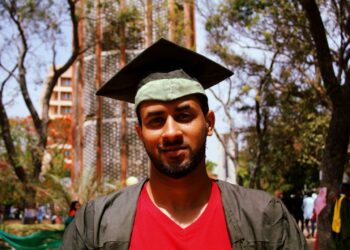Every knowledge and language starts with the basics. Learning Arabic also requires both knowledge and language skills. Arabic is not only an official language of more than 20 nations but also the language of the holy Quran. To learn the basics of the Quran, Noorani Qaida is the best basic language rules book. However, How can kids learn Noorani Qaida? The question gets addressed by expert advice. This guide will uncover some effective tips and recommendations to teach your children the Noorani booklet. You will find the tips helpful to help your child learn the basics of Quranic Arabic.
1. Alphabetical Recognition in Fun
Children are in the learning stage. They don’t learn things imposed on them as rules. Instead, the good practice to teach them Noorani Qaida is first to develop their familiarity with the Arabic alphabet. Parents should be involved with children in alphabetical recognition. If you’re playing cricket with them, you can exemplify their wicket as alphabetic Alif. Following the ball below the bat in horizontal conditions can be an instance of Baa.
2. Take Them Under Competition
The Arabic language is a good source of Blessings and knowledge. You can take your children under competition and learn with them. Tell them as a sacred language as it is a language of the holy Quran. You can tell how our Prophet uses this language as an entire Islamic heritage. Whenever you feel like your child is off the track, you should remind them that Arabic is considered the symbol of Islam, and this is the language in which Allah will speak to us on the Day of Judgment.
So, learning Quran recitation the way it should be is to yield the Blessings of Allah. The Prophet PBUH said: The best amongst you (Muslims) are the ones who learn the Qur’an and teach it. (Sahih Al-Bukhari). So, compete with them in a friendly and childish way. They can also get noorani qaida online classes at home with qualifies tutors.
3. Be Regularly Consistent
If you want your child to learn Noorani Qaida well and remember it quickly, you should try to allocate a regular time each day to practice with them. If you don’t have spare time for that, then you should hire the teaching service of a professional Quran teacher. This is super significant practice, and you’ll get much better over time. You need to remember that your child won’t become an expert in a few days or weeks, so you should be patient and keep putting in consistent effort every day with him.
4. Teach Them Pronunciation
Your child needs the art of mastering the pronunciation of words. Without explicitly correct pronunciation, he cannot be a good Qari. So, train them in each lesson when learning Noorani Qaida. This practice will serve as the foundational step in practicing Arabic and Quranic recitation. Whether you hire a Quran teacher or your child is learning independently, you must focus on rhymes and pronunciation of the Quranic letters and words.
5. Inculcate Learning in Them
Repetition is fundamental and leads to inculcation of the lessons. Continually practicing and repeating after the instructor will solidify the pronunciation in your child to grasp proper pronunciation. Once they become confident in pronunciation, the Noorani Qaida learners can confidently progress to their next Quranic Arabic step. Noorani Qaida is what steers them toward this foundational skill to develop their understanding and learning of Arabic and Quranic recitation further.
6. Pronunciation and Syllables
After your child has learned the pronunciation and learning of the letters, the next step in learning Noorani Qaida involves learning Arabic vowels and syllables. Teach them how to read Arabic text without vowels; it can be overwhelming to learn the basics. One of the most effective practices is the recognition of shadd, madd, zer, and zabaralongside the consonants. This can be particularly a little bit difficult for non-native speakers because vowels are often represented by diacritical marks rather than distinct letters. These marks, known as vowel signs, play a crucial role in clarifying pronunciation and meaning.
7. Letters Not Pronounceable in Arabic
Beginners need to familiarize themselves with the letters that are not pronounced in the Arabic language. For instance, the English language letters D, T & P are not pronounced in Arabic. So, for parents and Quran teachers, it is significant to teach your Quran-learning kids to identify the alphabet that is not pronounceable in Arabic. Teach them the signs that are essential for accurate reading and comprehension. With such letters and signs, many Arabic words may appear indistinguishable, which will make it easier to interpret the text correctly. Therefore, your child must learn the letters and vowels that are pivotal stages in the lead to practicing Noorani Qaida. The Quran basics booklet lays the fundamentals for learning and familiarizing oneself with the Arabic script with precision pronunciation fluency.
May Allah help you and your child with the knowledge and language skills that will







